Catch Leaks Early and Call a Plumber for Repair
Water leaks should be identified as soon as possible so a plumber can be called for leak detection and repair. The longer a leak is allowed to continue, the more money will be wasted, and the more water damage can occur. But many water leaks are out of sight behind walls or underground and can go unnoticed for a long time, increasing the water bills and the chances of water damage like wood rot and mold growth.
To protect their homes from further damage and keep water bills from skyrocketing, homeowners should try to catch any leaks as quickly as possible. This article will share a few helpful tips and signs for identifying a water leak so a plumber can be called to fix the leak quickly.
Common Signs of Water Leaks
A hidden water leak can be tricky to find, but it’s possible for homeowners who know what to look for. Here are some common signs that can alert homeowners to a leak:
- Wet spots, water stains, or discoloration on walls, floors, or ceilings
- Warped or damaged flooring
- Peeling or bubbly paint or wallpaper
- Mold and mildew growth
- Musty odors in the house
- The sound of running water when no water is in use
- Low water pressure from fixtures
Unusually High Water Bills
 Another clue that the home has a water leak is if the water bills are higher than normal for no apparent reason. Even a seemingly minor leak, like a dripping faucet, can waste thousands of gallons of water per year, so a spike in water costs without an increase in the household’s water usage can be a sure sign of a leak in the home.
Another clue that the home has a water leak is if the water bills are higher than normal for no apparent reason. Even a seemingly minor leak, like a dripping faucet, can waste thousands of gallons of water per year, so a spike in water costs without an increase in the household’s water usage can be a sure sign of a leak in the home.
Leaks can cause significant costs, not only on the water bill but also to repair any water damage that occurs, particularly if the leak isn’t addressed quickly. Fortunately, once the leak is located and repaired, the water bills will go down, so suspected leaks should be addressed as quickly as possible.
How to Test for Leaks Using the Water Meter
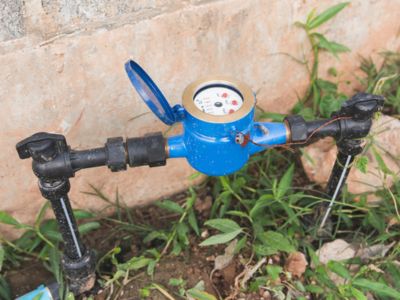 Homeowners can also be alerted to a leak by running a test with their water meter. Some water meters have a leak indicator in the shape of a triangle or asterisk, making it more obvious that there’s a leak. It will spin if water is flowing through the meter. If no fixtures are in use but this dial is turning, it indicates a leak. But if it doesn’t have this feature, a leak can still be detected with these steps:
Homeowners can also be alerted to a leak by running a test with their water meter. Some water meters have a leak indicator in the shape of a triangle or asterisk, making it more obvious that there’s a leak. It will spin if water is flowing through the meter. If no fixtures are in use but this dial is turning, it indicates a leak. But if it doesn’t have this feature, a leak can still be detected with these steps:
- Make sure no water is being used inside or outside the home. This is essential for an accurate result.
- Go to the home’s water meter and record the number displayed on the meter face (this number indicates the amount of water used, usually in cubic feet).
- Wait one to two hours, ensuring no water is used during this period, and then return to the meter.
- Compare the recorded number with the number currently displayed on the meter face. If the number has changed, water has continued to flow through the meter despite no water being used, which indicates a leak.
This test, along with the signs of a leak mentioned previously, can alert homeowners to a leak in the home, but it can’t tell them the precise location of the leak. So, the next step after suspecting a leak is to call a professional to perform water leak detection services to determine the exact location of the leak and then leak repair to fix it.
About Maxwell-White Plumbing
Maxwell-White Plumbing is a family-owned company that has been serving West Salem, WI, and the surrounding areas since 1994. They provide straightforward pricing, the latest technology, and prompt, professional service. Call them today for water leak detection and repair in West Salem, WI.
Distribution Links +
- lifestyle.myeaglecountry.com
- newsnetmedia.com
- atlanta.newsnetmedia.com
- augusta.newsnetmedia.com
- austin.newsnetmedia.com
- boise.newsnetmedia.com
- buffalo.newsnetmedia.com
- columbia.newsnetmedia.com
- columbus.newsnetmedia.com
- detroit.newsnetmedia.com
- fresno.newsnetmedia.com
- jacksonville.newsnetmedia.com
- losangeles.newsnetmedia.com
- minneapolis.newsnetmedia.com
- monterey.newsnetmedia.com
- myrtlebeach.newsnetmedia.com
- nashville.newsnetmedia.com
- norfolk.newsnetmedia.com
- odessa.newsnetmedia.com
- pittsburgh.newsnetmedia.com
- portland.newsnetmedia.com
- quincy.newsnetmedia.com
- sacramento.newsnetmedia.com
- saltlakecity.newsnetmedia.com
- sanantonio.newsnetmedia.com
- santabarbara.newsnetmedia.com
- siouxfalls.newsnetmedia.com
- waco.newsnetmedia.com
- sports.newsnetmedia.com
- lifestyle.roanokenewstalk.com
- https://smb.theleesvilleleader.com
- https://smb.prentissheadlight.com
- https://smb.beauregardnews.com
- https://pr.hattiesburg.com
- https://pr.walnutcreekmagazine.com
- https://pr.thembnews.com
- https://pr.stylemg.com
- https://pr.bradfordvillebugle.com
- https://pr.boreal.org
- https://pr.timesofsandiego.com
- https://pr.chestercounty.com
- https://pr.wncbusiness.com
- https://pr.ashlandtownnews.com
- https://pr.millismedwaynews.com
- https://pr.norwoodtownnews.com
- https://pr.hopedaletownnews.com
- https://pr.franklintownnews.com
- https://pr.naticktownnews.com
- https://pr.norfolkwrenthamnews.com
- https://pr.omahamagazine.com
- https://pr.hollistontownnews.com
- https://pr.greenvillebusinessmag.com
- https://pr.davisjournal.com
- https://pr.columbiabusinessmonthly.com
- https://pr.herrimanjournal.com
- https://pr.holladayjournal.com
- https://pr.millcreekjournal.com
- https://pr.wvcjournal.com




 It’s not surprising to see that energy efficiency is at the top of the list of reasons why
It’s not surprising to see that energy efficiency is at the top of the list of reasons why 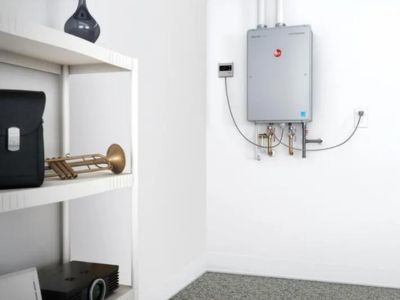 Another notable feature of a tankless water heater is its size. Compared to conventional
Another notable feature of a tankless water heater is its size. Compared to conventional 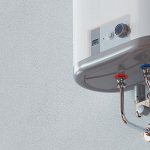


 Water softeners combat the negative effects of water hardness on hair, skin, and various household materials and appliances. Not only do they improve the health of skin and hair, but they also make it more comfortable to wash hands and take showers by eliminating the dryness and itchiness that come with hard water.
Water softeners combat the negative effects of water hardness on hair, skin, and various household materials and appliances. Not only do they improve the health of skin and hair, but they also make it more comfortable to wash hands and take showers by eliminating the dryness and itchiness that come with hard water.

 There are many benefits to routine water heater maintenance, but the biggest and most obvious one is the continued use of the water heater with fewer issues. The more often homeowners skip yearly maintenance, the more likely the heater will fail. While this may not happen immediately (or even very quickly), the water heater will suffer if maintenance is skipped. Plus, some water heater warranties require proof of yearly maintenance. So, if something happens to the heater without proof of maintenance, it could void the warranty.
There are many benefits to routine water heater maintenance, but the biggest and most obvious one is the continued use of the water heater with fewer issues. The more often homeowners skip yearly maintenance, the more likely the heater will fail. While this may not happen immediately (or even very quickly), the water heater will suffer if maintenance is skipped. Plus, some water heater warranties require proof of yearly maintenance. So, if something happens to the heater without proof of maintenance, it could void the warranty.  It’s essential to know what happens during water heater maintenance to understand its importance. One thing that gets done during maintenance is the flushing of the tank. During the normal operation of a water heater, sediment and minerals build up inside the unit. This is true for both tankless water heaters and traditional storage water heaters. So,
It’s essential to know what happens during water heater maintenance to understand its importance. One thing that gets done during maintenance is the flushing of the tank. During the normal operation of a water heater, sediment and minerals build up inside the unit. This is true for both tankless water heaters and traditional storage water heaters. So, 
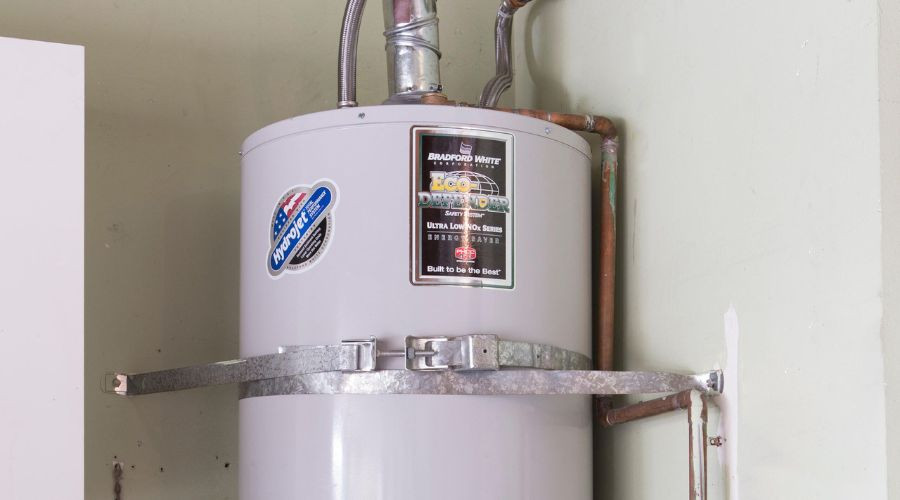
 Ideally, the home’s water heater shouldn’t make any loud noise. If someone hears any sounds like these from the water heater, they should consult a plumber:
Ideally, the home’s water heater shouldn’t make any loud noise. If someone hears any sounds like these from the water heater, they should consult a plumber:  There’s nothing worse than reddish, cloudy, or brown water that smells bad coming from the tap. Some reasons behind this can include:
There’s nothing worse than reddish, cloudy, or brown water that smells bad coming from the tap. Some reasons behind this can include: 

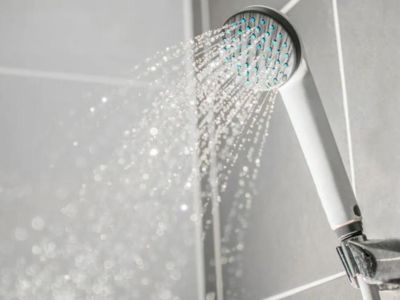 The most effective way households can save water is to install water-saving fixtures. Luckily, every plumbing fixture and water-using appliance found in a home has a water-saving version available that can help reduce water usage every time it’s used.
The most effective way households can save water is to install water-saving fixtures. Luckily, every plumbing fixture and water-using appliance found in a home has a water-saving version available that can help reduce water usage every time it’s used. 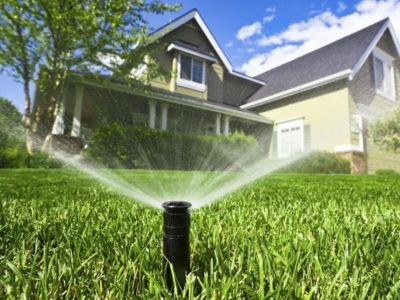 One big drain on the summer budget is keeping the lawn looking great. As the seasonal rains slow down in the late spring, it will be the responsibility of the homeowner to water the landscape and the garden as much as necessary to keep the plants healthy. Knowing when to water the yard can reduce the water bill by preventing having to water it more.
One big drain on the summer budget is keeping the lawn looking great. As the seasonal rains slow down in the late spring, it will be the responsibility of the homeowner to water the landscape and the garden as much as necessary to keep the plants healthy. Knowing when to water the yard can reduce the water bill by preventing having to water it more. 

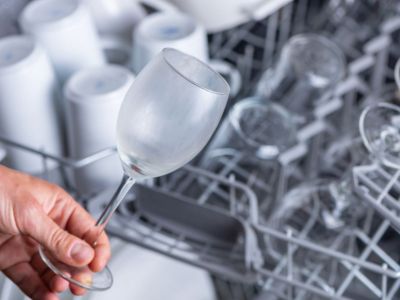 The thing about hard water and cleaning is that the minerals react with soap in unpleasant ways. Calcium in hard water is responsible for the soap scum on sinks and tubs. A few of the everyday inconveniences that come with hard water include:
The thing about hard water and cleaning is that the minerals react with soap in unpleasant ways. Calcium in hard water is responsible for the soap scum on sinks and tubs. A few of the everyday inconveniences that come with hard water include: Hard water contains high levels of minerals that can also leave residue and deposits on hair and skin. This can strip away natural oils and moisture, leading to dryness. Hair may become frizzy and brittle, while the skin may become flaky and itchy. In contrast, soft water eliminates these harsh minerals, making hair and skin feel softer and more hydrated.
Hard water contains high levels of minerals that can also leave residue and deposits on hair and skin. This can strip away natural oils and moisture, leading to dryness. Hair may become frizzy and brittle, while the skin may become flaky and itchy. In contrast, soft water eliminates these harsh minerals, making hair and skin feel softer and more hydrated. 


 In many homes, space is an issue. Today’s water heaters are more efficient than their predecessors and can save a great deal of space. This is especially true for
In many homes, space is an issue. Today’s water heaters are more efficient than their predecessors and can save a great deal of space. This is especially true for 


